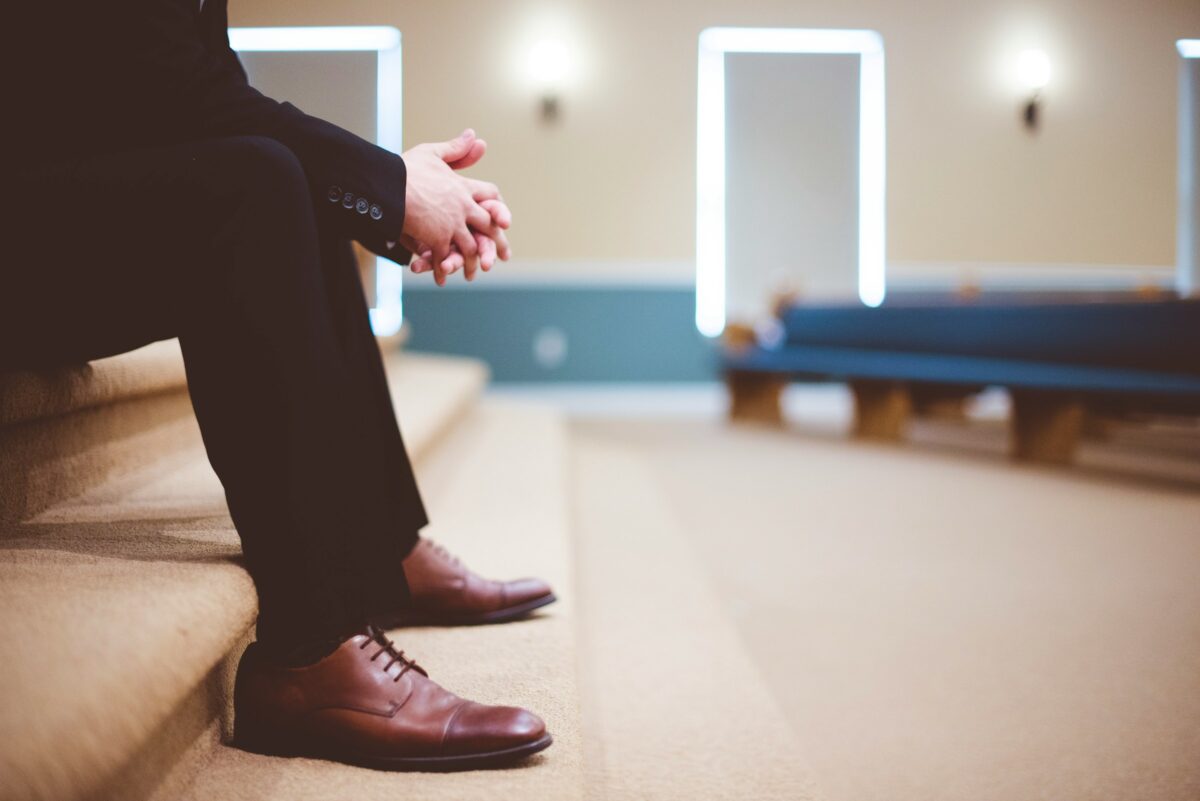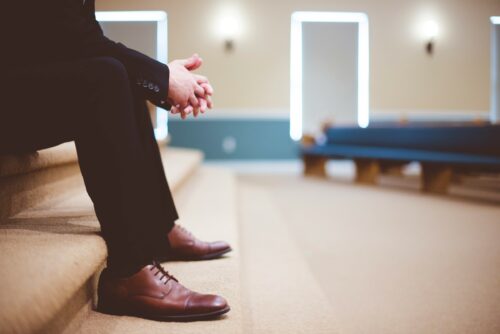
“I’m never going to fit in here.” That’s what I was saying to myself during church the other morning in our small hometown.

Dwight Kealy
We attended a half-hour gathering before the service where we could have donuts and get to know people. They had us read Galatians 5:22-23 and discuss why the fruits of the spirit are referred to as fruit, which fruits we are most “drawn to,” and which we find the most difficult. Seems simple enough, except that at the end of the famous passage it states, “Against such things there is no law,” to which the man across the table responded, “Not yet.” He nodded with the confidence of a man who knew things.
My inner monologue started to repeat “Love, joy, peace, patience, kindness, goodness, faithfulness, gentleness, self-control. Kindness … gentleness … self-control.”
His “not yet” told me that he has bought into the lie that Christianity is under attack in the United States and that maybe we can’t trust our judicial system and laws because, well, that’s what former president Trump was saying after being convicted on 34 counts of falsifying business records. What the man didn’t know was that “people of faith in the United States of America enjoy more liberty and more real political power than any faith community in the developed world.”
He didn’t know that Title VII of the Civil Rights Act of 1964, which prevents employers from discriminating because of an employee or applicant’s religion, does not apply to religious corporations, associations, and educational institutions. The same is true of the Americans with Disability Act of 1990. As Religious Liberty attorney David French spells out in his 2020 article, “The True Extent of Religious Liberty in America, Explained,” this means that while employers generally cannot discriminate against applicants based on their race, color, sex, national origin, or disability, religious organizations are free to “filter out … applicants who do not share the group’s faith.”
Even Title IX, which some religious organizations fear will subject them to sexual identity discrimination, states that the Act “shall not apply to any educational institution which is controlled by a religious organization if the application of this subsection would not be consistent with the religious tenets of such organization.”
The man must not know that religious liberties in the United States have expanded, not contracted over the decades. In 2012, a unanimous Supreme Court decision in Hosanna-Tabor Evangelical Lutheran Church and School v. EEOC held that religious employers are exempt from nondiscrimination laws when hiring and firing “ministerial” employees. In 2021, a unanimous Supreme Court decision in Fulton v. City of Philadelphia, Pennsylvania held that it violated the Free Exercise Clause of the First Amendment for a city to refuse to contract with a Catholic foster care service unless the organization agreed to certify same-sex couples as foster parents. In 2023, a unanimous Supreme Court decision in Groff v. DeJoy strengthened protections for religious employees by requiring employers to accommodate an employee’s religious accommodation unless doing so would result in “substantial increased costs” and not some trivial “de minimis” rescheduling inconvenience. I could go on.
The man’s “not yet” comment made me think of the power of the lie.
Last year Christians shared and praised the Dinesh D’Souza movie “2000 Mules” that alleged voter fraud in the 2020 Presidential election. I didn’t see any headlines from friends this week after the publisher of the movie apologized for falsely accusing a man of voter fraud and said it had “removed the film from Salem [Media Group’s] platforms, and there will be no future distribution of the film or the book by Salem.”
Christians shared and praised Christian former Trump attorney Jenna Ellis when she spread “stop the steal” propaganda. I didn’t see any posts this week after Colorado announced that she had been barred from the practice of law for three years after she plead guilty to felony charges of aiding and abetting false statements as a Trump co-defendant in the Georgia election subversion case.
Christians shared Fox News election lies, but then there was silence to the news that Fox paid Dominion Voting Machines $787.5 Million dollars to settle a defamation lawsuit after discovery showed Fox executives and on-air personalities knew they were telling their audience election lies. For perspective on the settlement, Fox paid $787.5 million to a company with annual revenue “estimated at just under $100 million” in 2022, and “private equity firm Staple Street Capital valued Dominion at $80 million when it purchased a controlling stake in it in 2018.”
They’ve traded the hope of the gospel for fears rooted in lies.
I have seen this before. In 2021, a friend who has always felt called to be a pastor shared on Facebook that a Marine Corps commander was threatening to have his Marines shoot at anyone who would try to give them the COVID-19 vaccine shot. Before becoming an attorney, I had enlisted in the United States Marine Corps where I served as an Arabic Linguist, platoon commander, and as the Intelligence Analysis Officer for the 1st United States Marine Corps Division — a role I held on September 11, 2001. It didn’t take me long to discover the story was false and I noted that the story was satire.
His response was immediate, but it wasn’t to apologize or retract. It was to attack. He mocked me for being a “new fact checker,” working for “FaceFarce,” and told me there were Marines with higher ranks than me who had already “liked” it. “But,” I questioned. “did they know it wasn’t true?” My question fell on deaf ears. For him, in his post among various sermon excerpts, it was the sentiment that mattered, not the truth.
Christians hear, share, and remember lies. The light that exposes their lies doesn’t make their newsfeed.
They love Jesus. And I want to be a part of Christian community. But they do believe and share lies.
And I’m never going to fit in here.
Dwight Kealy is a missionary kid/attorney/college professor of business law at New Mexico State University and holds a Master’s degree in Religion from Yale Divinity School.







